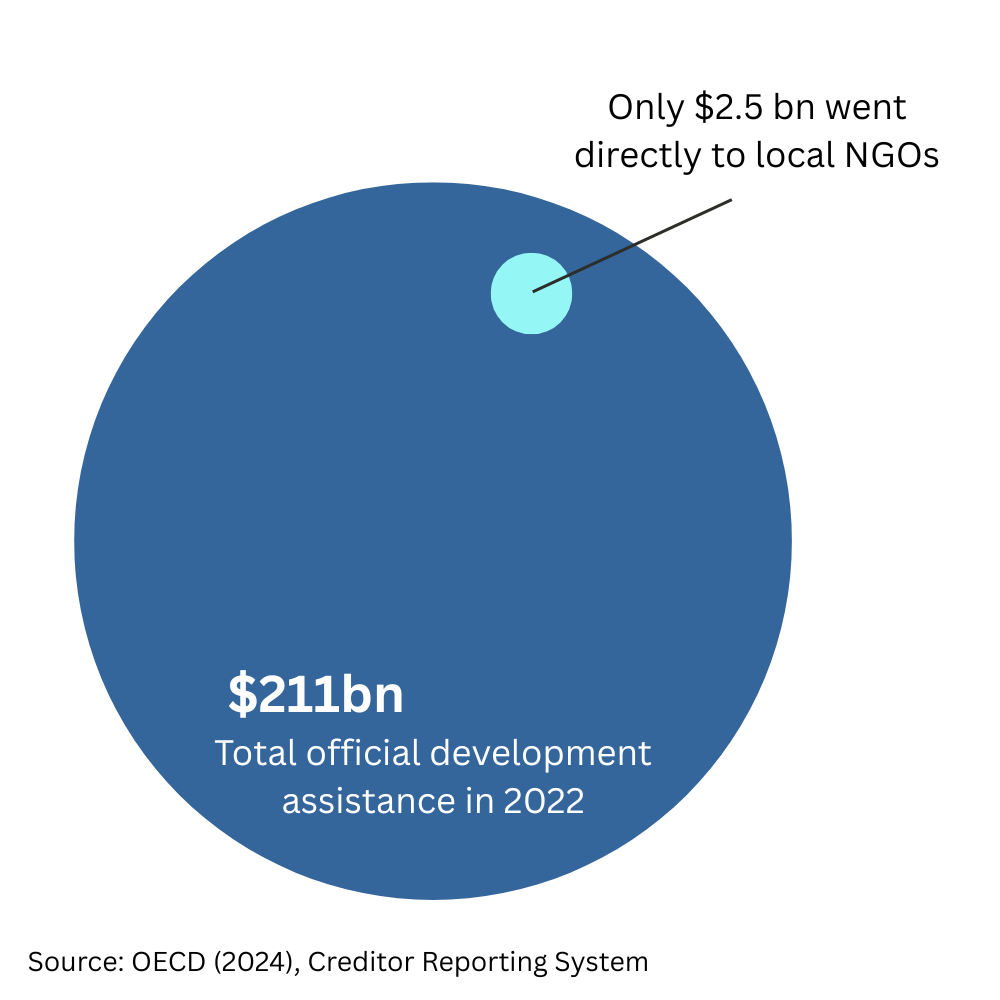Why localisation
Local organisations are the first to respond when crises hit – yet they receive less than 2% of direct humanitarian funding worldwide.
© Nurture Aid Initiative for Rohingya (NAIR)
Localisation is about changing this imbalance. It means shifting power and resources to those who know their communities best.
International commitments to localisation
There is a strong international commitment to localisation: Through agreements such as the Grand Bargain, governments and aid agencies have pledged that at least 25 percent of humanitarian funding should go as directly as possible to local and national actors. They have also promised to provide longer term funding, greater transparency and stronger support for building local capacity. Other initiatives, including the Charter for Change, commit the international community to working in equal partnership with local organisations and ensuring their leadership is recognised.
In practice, progress towards these goals has been slow and uneven.
Why localisation matters
Localisation is not a slogan, it is a practice. It means recognising that sustainable solutions come from within societies themselves. It means ensuring that local actors have access to the resources, decision-making spaces and partnerships they need.
Local organisations are rooted in their communities. They understand the history, the risks and the priorities. This makes responses more relevant and more trusted.
Proximity and local knowledge
Direct support to local actors reduces overhead, speeds up delivery and ensures that resources are spent where they are needed most.
Efficiency and impact
Localisation addresses the unequal distribution of resources and decision-making in international aid. It is about genuine partnership, not dependency.
Fairness and balance
When funding strengthens local institutions, knowledge and systems remain long after a project cycle ends.
Sustainability
What localisation is not:
It is not about shifting risks without support.
It is not about out-sourcing work to save costs.
It is not about ending international solidarity.

Localisation means building a system that is more just, more effective and more resilient.





